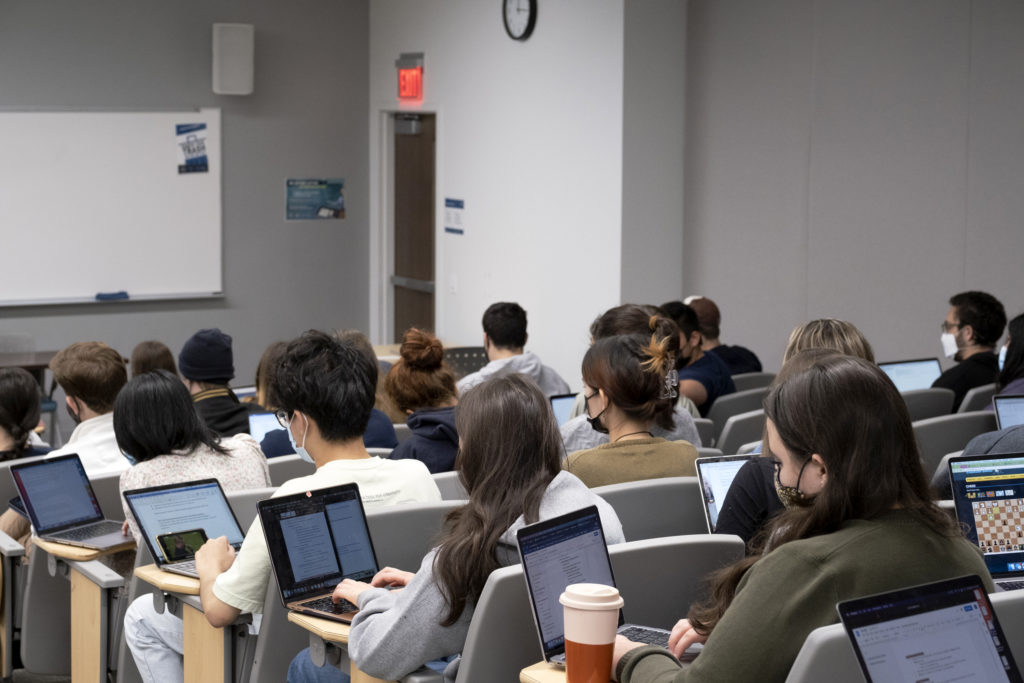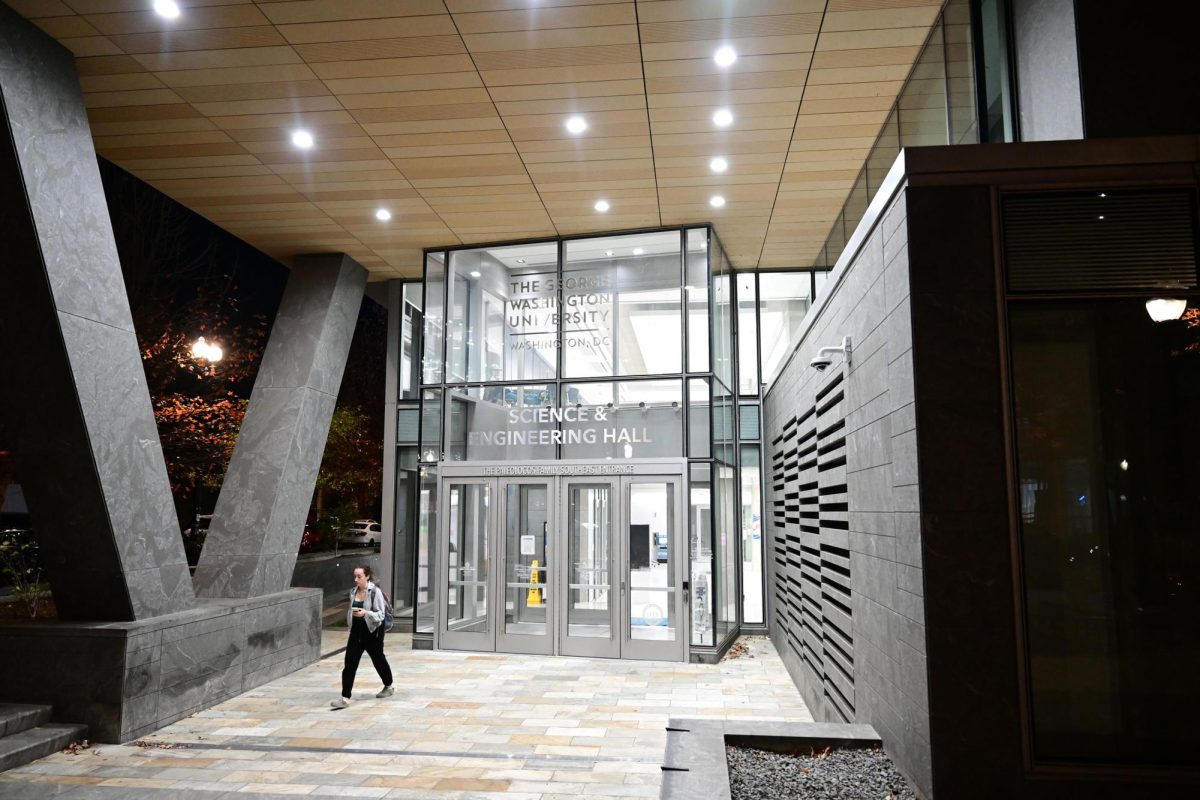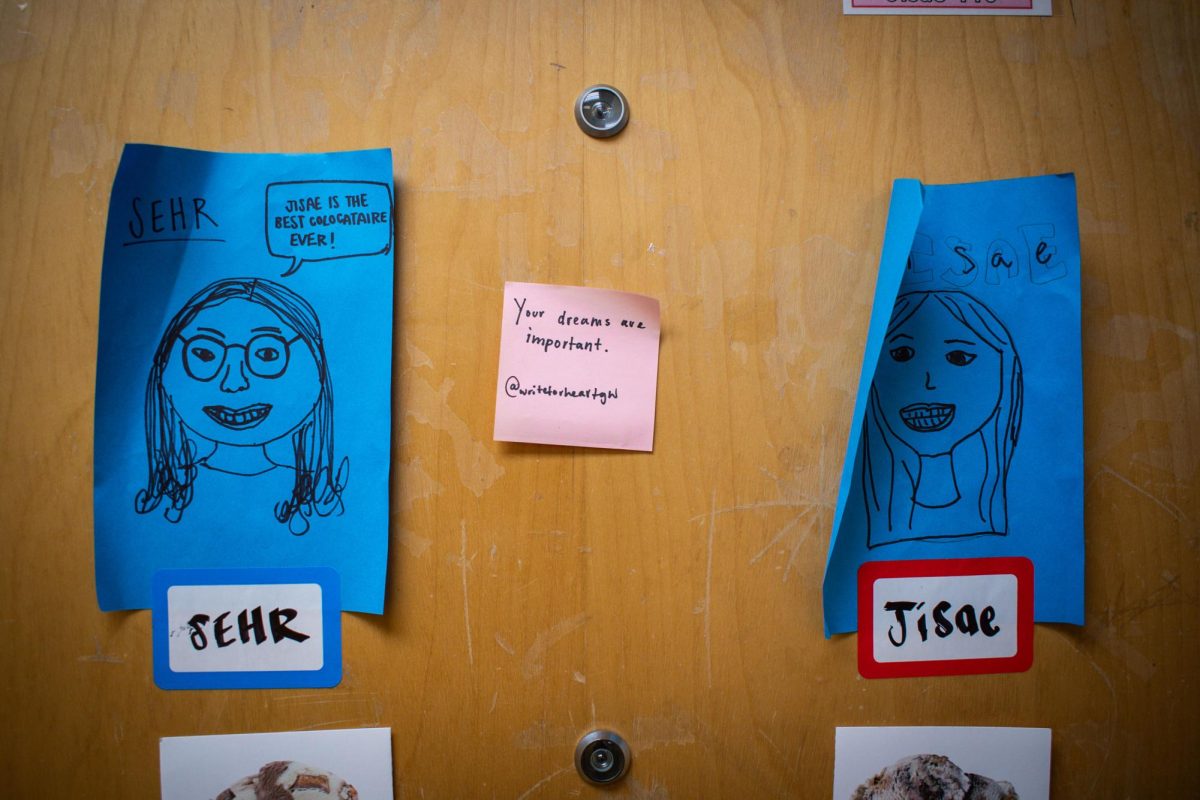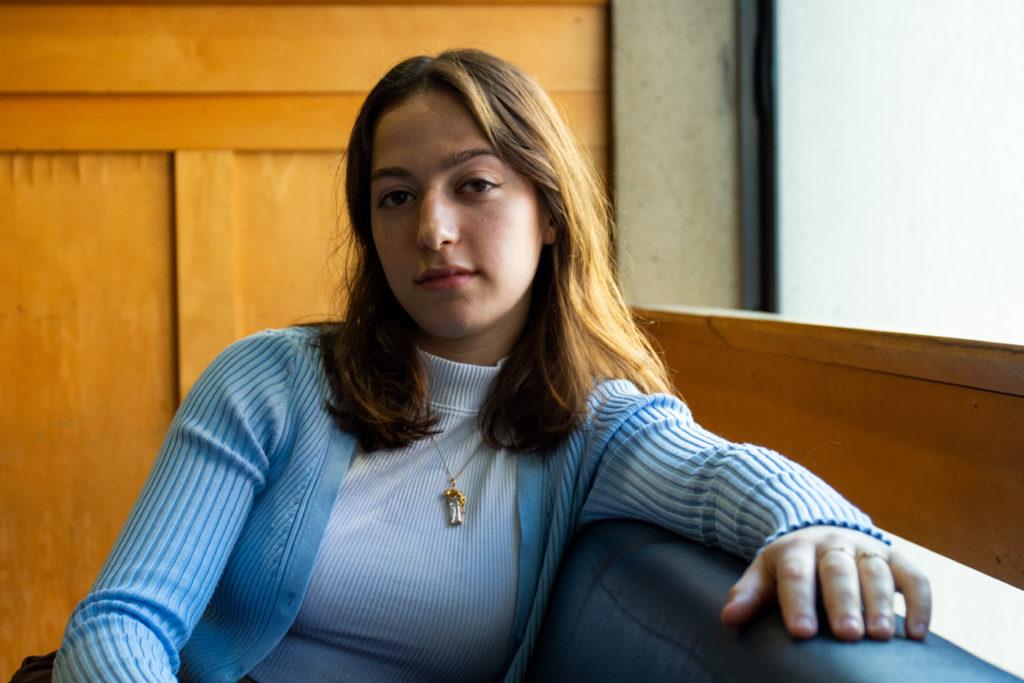Freshman Jackson Dueweke was grateful to step onto campus in August following the University’s reopening. But that was before anxiety and social burnout began to take hold of his in-person college experience.
Dueweke said his anxiety can often stem from any daily task related to in-person classes, from professors calling on him during discussions to getting dressed and prepared for class in the morning. He said he feels “exhausted” throughout the day after facing increased social interactions on the heels of more than a year of isolation during the COVID-19 pandemic.
“Being online, I didn’t have to use as much energy learning, and now being in person, I get burnt out way faster,” he said. “And that’s kind of not great because I get tired because interacting with people takes a lot of energy. And I just get burned out really fast being in person when I didn’t have to do all that social interaction online.”
Dueweke is one of more than 20 students who said in interviews that they’re struggling to cope with busy schedules, crowded in-person classes and heightened academic rigor more than a month after the University’s reinstatement of in-person classes. Students said they feel overwhelmed academically and socially drained after GW’s virtual hiatus, pushing them to seek support through their peers, student organizations and offices like the GW Writing Center.
Dueweke said to reduce his anxiety, he attends office hours with his professors and he tries to find quiet spaces around campus – like Gelman Library or Square 80 – to focus without the stress of social interaction.
“The main thing for me was the college transition is already difficult from high school, but after not doing real school, or a lightened workload for a year and a half, and then being thrown into not only the college workload, but then a full-time school workload has been really difficult for me with managing time,” he said.
Yousra Barekzay, a sophomore who hasn’t declared a major, said she’s struggling with stress during the transition to in-person learning. She said she has adopted new study techniques, like study groups, after enjoying more free time at home during isolation last year. She said she feels burnt out taking in-person exams, which she feels are less clear than those conducted virtually, and fail to match the outlines listed in the syllabi.
For stress relief, Barekzay said she turns to her peers to talk about the anxiety tied to academics during the in-person transition.
“They’re changing up what’s on the syllabus based on what we’re doing in person, and online we were a lot more focused on the syllabus,” she said. “But in person, we’re a lot more behind, so our exam is kind of unstructured.”
Alex Rainey, a sophomore majoring in exercise science, said they have been “overwhelmed” struggling to find the motivation to attend their in-person classes, falling behind on assignments and coping with stress. They said time management has been difficult while they juggle both an academic and social life.
“I’ve definitely been overwhelmed academically, there was a period for a couple of weeks where I found myself struggling to actually go to the classes and catch up on the readings,” they said.
Rainey said professors should offer increased flexibility with assignments to be more cognizant of mental health as schoolwork ramps up and students feel more inundated with in-person academics. They said professors should extend deadlines and start recording their lectures in person after officials upgraded classroom technology with new computers, web cameras, microphones and access to virtual platforms ahead of the start of the semester.
“They’re not really thinking about students’ mental health,” Rainey said. “I feel like a lot of them are taking the attitude that the University had over the summer with, ‘Oh, everything’s fine, wow we’re back in person, everything’s normal.’”
They said they don’t have time to find coping skills for stress as academic work and extracurriculars occupy most of their day.
The University offers students support and resources to destress through Counseling and Psychological Services, which works with students to overcome challenges that interfere with academic, emotional or personal success.
“I haven’t found any good coping skills,” they said. “My time is always taken up with schoolwork and my other extracurriculars that I don’t really have time for myself.”
Eve Parent, a freshman majoring in photojournalism who experiences anxiety-related symptoms like panic attacks, said she tries avoiding large crowds on campus, a “scary’’ part of her return to in-person life that can also worsen her symptoms.
“I think there’s a lot of stimulation that there wasn’t before,” she said. “For someone that gets overstimulated pretty easily, I think it can be hard to go around having that busy day and then still having to go home and be like, ‘Okay, I’ve got to work on this art project,’ it’s difficult.”
Zainab Mianoor, a freshman majoring in political science and an international student from Pakistan, said this is only her second time in the United States, and she feels overwhelmed transitioning to a new location and re-learning how to socialize in person. She said she is scared to interact with other students after taking classes at home and having access to the support system of her parents during the pandemic.
Mianoor said daily in-person college life, marked by a busy class schedule, causes burnout with little time to decompress compared to her time at home during the pandemic. She said she turned to student organizations, like the South Asian Society and the Pakistani Student Association, to meet others and ease into the transition at events, like the Multicultural Student Services Center’s Block Party in University Yard last month.
“There’s so much in the day to do, and so combined, it is a lot, and I’m not used to it because I’ve been in bed during quarantine,” she said. “So yes, in that sense, yes, there is burnout.”








